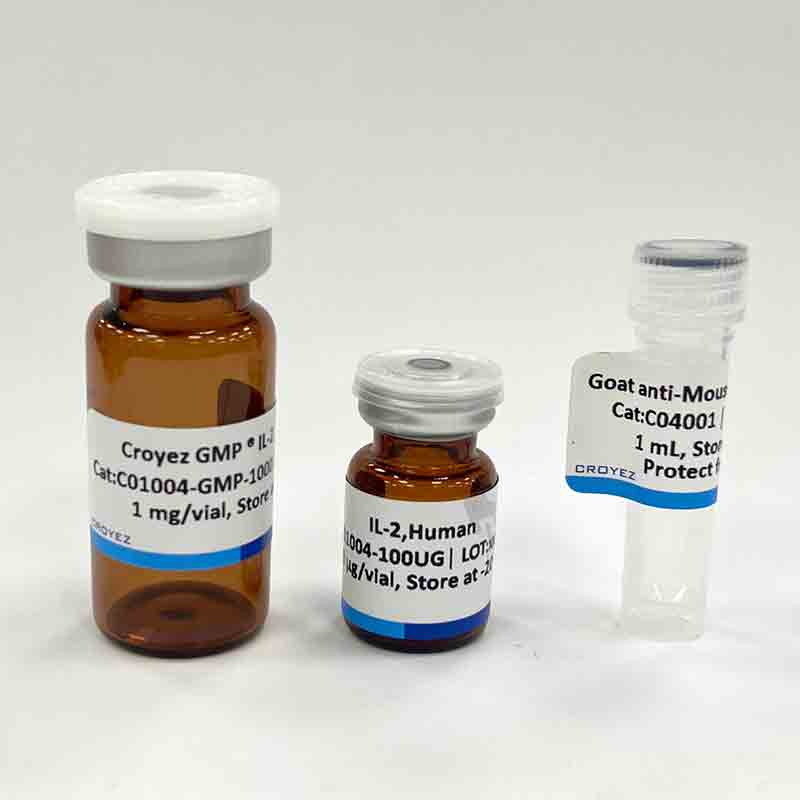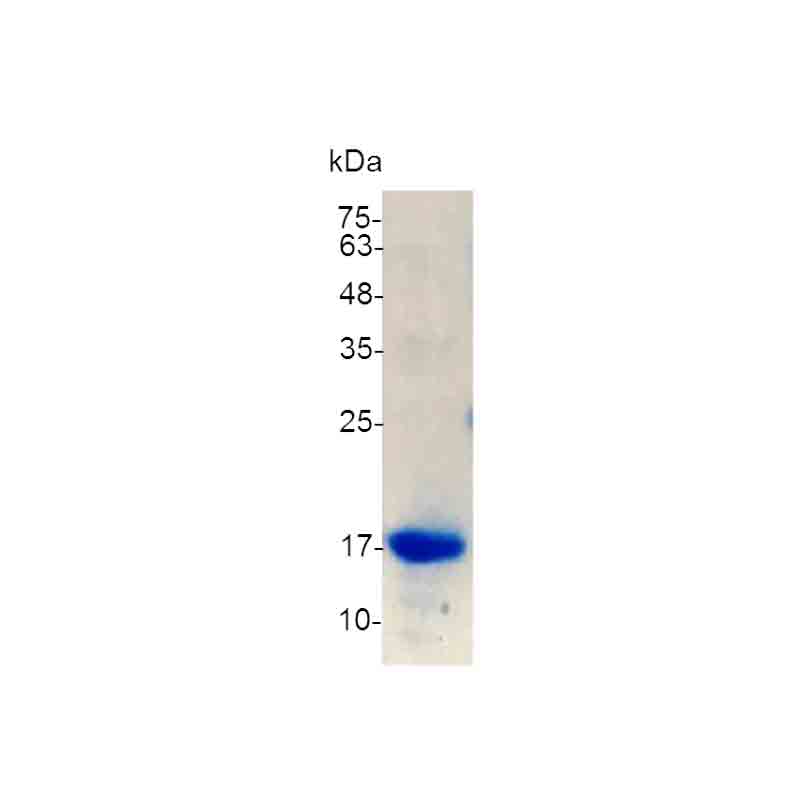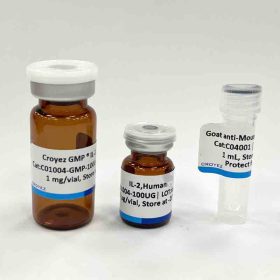B-cell activating factor (BAFF) also known as tumor necrosis factor ligand superfamily member 13B is a protein, that in humans, is encoded by the TNFSF13B gene. BAFF is also known as B Lymphocyte Stimulator (BLyS) and TNF- and APOL-related leukocyte expressed ligand (TALL-1) and the Dendritic cell-derived TNF-like molecule. BAFF is a cytokine that belongs to the tumor necrosis factor (TNF) ligand family. This cytokine is expressed in B cell lineage cells, and acts as a potent B cell activator. It has been also shown to play an important role in the proliferation and differentiation of B cells.
Sequence:
MAVQGPEETVTQDCLQLIADSETPTIQKGSYTFVPWLLSFKRGSALEEKENKILVKETGYFFIYGQVLYTDKTYAMGHLIQRKKVHVFGDELSLV
TLFRCIQNMPETLPNNSCYSAGIAKLEEGDELQLAIPRENAQISLDGDVTFFGALKLL with polyhistidine tag at the C-terminus
Source:
Escherichia coli
Endotoxin Test:
<0.1 EU per 1 μg of the protein by the LAL method.
Activity:
Measure by its ability to induce IL-8 secretion in human PBMCs. The ED50 for this effect is <0.5 ng/mL.
Purity:
>98% as determined by SDS-PAGE. Ni-NTA chromatography
Formulation:
The protein was lyophilized from a solution containing 1X PBS, pH 8.0.
Reconstitution:
It is recommended to reconstitute the lyophilized protein in sterile H2O to a concentration not less than 100 μg/mL and incubate the stock solution for at least 20 min to ensure sufficient re-dissolved.
Storage:
Lyophilized protein should be stored at -20°C. Upon reconstitution, protein aliquots should be stored at -20°C or -80°C.
Note:
Please use within one month after protein reconstitution.





